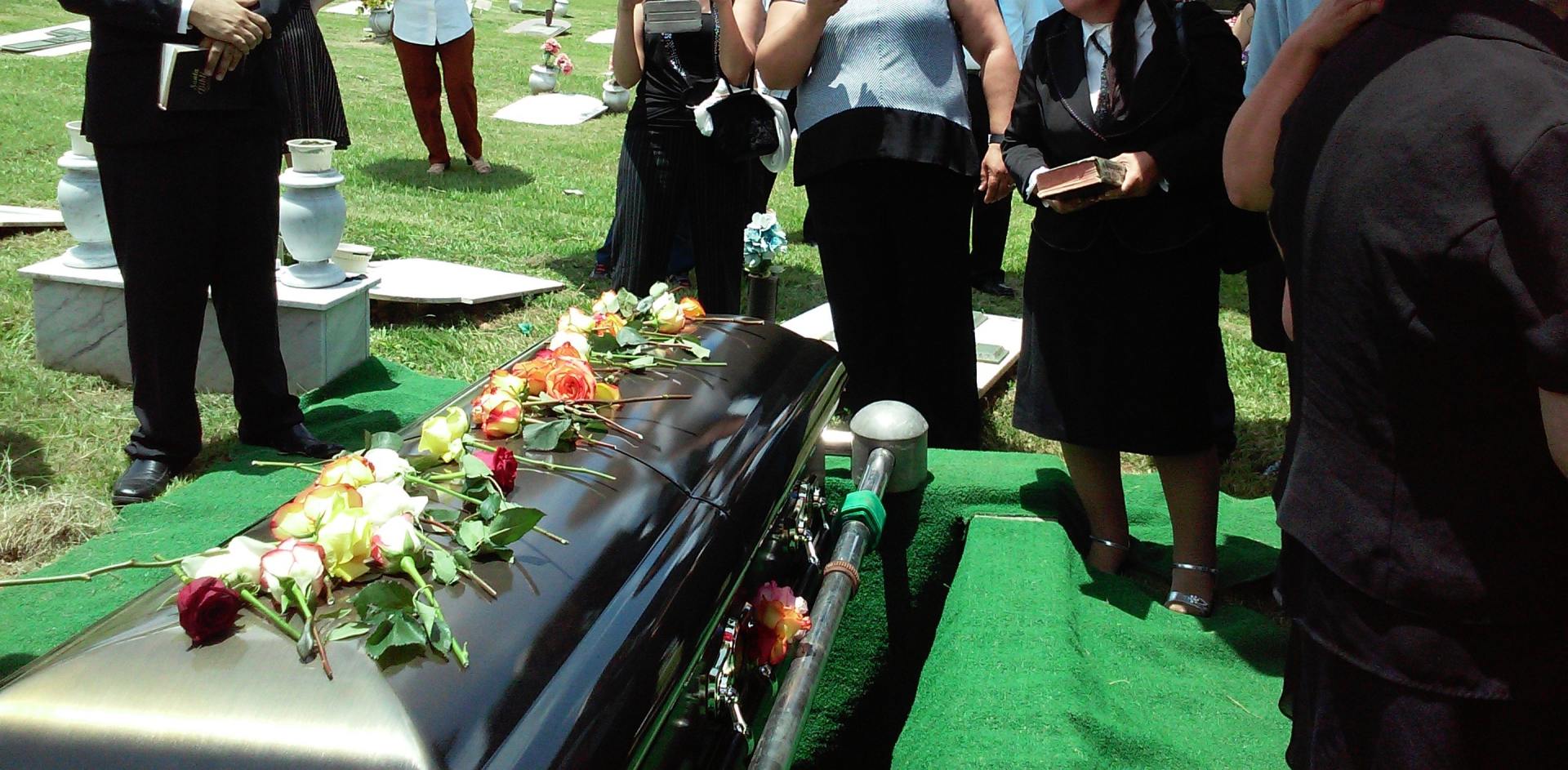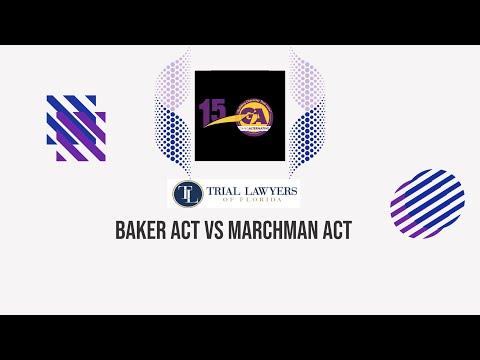
Losing a loved one is an extraordinarily difficult process. In addition to dealing with grief there are a whole host of obligations for friends and family. Our experienced probate lawyers can assist you in navigating through this difficult period and ensuring that your loved one’s wishes are honored. What are Florida Probate Cases? Probate law is a court-supervised process where the assets of the deceased are identified, debts are paid, and the remaining proceeds are paid to beneficiaries. As a general matter, the only assets required to be administered are those that were owned solely by the deceased. Assets such as life insurance proceeds are rarely part of the probate estate. Where the deceased has left a last Will and Testament it is easy to determine who should get what assets. However, where there is no Will the probate process can become far more complex and emotionally draining for family and friends. For those that pass without a will, statutory laws determine how assets are distributed. Often these distributions are contrary to the wishes of the deceased. The length of the probate process in Florida varies depending on the complexity of the case. In a simple case the entire process can be completed in several months. However, in complex cases the process can last several years. Who Supervises Florida Probate Cases? In Florida probate cases are presided over by a circuit court judge. The judge will be responsible for making important decisions and appointments in the case. One of the first actions the judge will take is to appoint a Personal Representative on behalf of the estate. In other states the Personal Representative is called an executor. Often the Personal Representative is named in the will. The Personal Representative is responsible for carrying out important functions on behalf of the estate and must be represented by an attorney to ensure that all legal requirements are met. Do Florida Laws Offer any Protections to Surviving Family Members? Florida probate laws offer important protections for surviving spouses and children. These laws prevent the surviving spouse and children from being disinherited. Florida probate laws also offer protections where the deceased created a will prior to getting married or having children and the will was never revised. In such cases, the law presumes that the deceased would have wanted to provide a normal share for his or her wife and children. Whether you are dealing with the loss of a loved one and need assistance administering the estate or are interested in creating a will or trust our experienced Florida probate lawyers can assist. Our firm is experienced in all aspects of Florida probate cases. Please contact us today.

Motorist Insurance. It’s really important for all of us to have uninsured motorist insurance. Here’s why: In Florida, 1 in 3 drivers is uninsured and, in some areas (such as Broward County) it’s as high as 44%. You MUST, as a driver, have your own PIP – Personal Injury Protection. The law mandates that you must have this insurance so that if you’re in an accident, your insurance company pays the first $10,000 of your medical bills. This is regardless of who’s at fault – that’s where the “no-fault” status (in Florida) comes in. However, if another driver causes an accident that you are in, if the other driver doesn’t have “bodily injury” coverage, then you won’t be able to collect any money from them for any of your injuries (over the $10,000 covered by your insurance). This is why it’s critical to have “uninsured motorist insurance.” Here’s a story about how this happened to one unfortunate driver: A client of mine, let’s call him George, was driving to pick up his wife and, out of nowhere, a woman broadsides his car. It flips over and George suffers from broken ribs – one of which punctures his lung. He’s taken to the hospital, where he stays from February through April. His medical bills are in excess of $100,000 and George is going to need physical therapy when he finally leaves the hospital. George had Personal Injury Protection (PIP) insurance, but he did not have uninsured motorist insurance. The woman who hit him was driving a rental car and she had no “bodily injury insurance,” which is what you need if you hit someone else. George now has over $100,000 in medical bills and has been out of work for three months (so far), and the driver who caused the accident has no insurance to pay these bills. Word to the wise : if you don’t have uninsured motorist insurance, and someone hits you, and they don’t have coverage, you’re out of luck. You may try to sue them but, oftentimes, they don’t have any assets. So, the next time you speak with your insurance agent, tell them you want “uninsured motorist coverage.” It doesn’t cost very much more on your policy and, if someone hits you and they do not have full coverage, you will be protected.

Every healthy adult needs to be sure s/he has what I call the “big three” legal documents: a living will a designation of healthcare surrogate durable power-of-attorney Why must you have all three? Because if you become incapacitated, these three documents will ensure that your wishes are followed. Let’s break these down so you know what each one covers: Living Will tells medical professionals what you want to happen should you ever need care. It answers questions that you may not be able to, if you’re incapacitated, such as: Do you want to remain on life-support? Do you want a blood transfusion? Do you have particular beliefs or preferences about the kind of care you’ll receive? This document has nothing to do with the division of property, which is covered by a regular will. The living will is ONLY about medical care. Designation of a Healthcare Surrogate is someone you pick who is willing and able to make the medical decisions for you (such as you’ve outlined in your Living Will) if you are incapacitated. Again, this person can only make medical and healthcare decisions on your behalf, while you are living. The Durable Power of Attorney will come into play if there’s a situation in which you become incapacitated and financial decisions need to be made or executed. This person handles your finances when you cannot. The word “durable” means that the minute you become incapacitated, the power of attorney becomes valid. This person has the ability to: go into your bank account and make withdrawals make loans in your name file a lawsuit in your name deal with Medicaid and Medicare in your name. Given this broad range of capabilities (and responsibilities), you need to be sure that anyone you designate as your Durable Power of Attorney is someone you trust with all these decisions. Word to the wise: these big three documents are ALL necessary because they control what happens to you, and for you, while you are alive. You don’t want anyone else, such as a hospital, making a decision about whether or not you will stay on life support, or someone you don’t trust managing your finances. An example of this type of situation is someone I know, let’s call her Bethany, who had a stroke during pregnancy and had to be put on life support. She didn’t have any of these documents because she was only 23 years old. The hospital decided they were going to take her off life support. The family was then forced to take the hospital to court, to stop them from taking Bethany off of life support. Legal fees for this kind of situation are well in excess of $6,000!

It’s June now and kids are out of school for the summer. Do your kids have activities planned? Do you know where they’ll be every moment of every day? Most parents don’t have every day planned, and often older children left on their own for long periods of time will get bored. Without supervision or a structured calendar, kids sometimes get into trouble. They may spend time wandering through malls, for example, or hanging out with their friends in retail areas. Shopkeepers are often on the lookout when summer is out and are wary of kids wandering around in or near stores. Sometimes, children or teenagers are accused of stealing. If that happens, the best way to handle it is to: Contact an attorney Do NOT have your child answer questions or speak to the police. Even if the police indicate they will help if your child is innocent, it’s important to wait until an attorney is present before your child says anything. Do not make any agreement with the store owner or manager until you’ve spoken with an attorney. If your child is a minor, be aware that you have the right to be present when s/he is being questioned. Once you’ve reached out to an attorney, the next steps vary, depending on the situation. Once you’ve reached out to an attorney, the next steps vary, depending on the situation. Here are just a few scenarios that your attorney might follow: Investigate and show that there is no evidence your child stole from the store and represent your child during the trial. If the evidence against your child is really strong, assist with enrolling your child in a diversion program, which includes anti-theft classes and ultimately the case may be dismissed. Other activities that can help to lessen the charges (if a crime was committed). Most importantly, remember that you, as a parent, are the front line of defense for your children. If your child is under the age of 18, you should make all the decisions and do all the talking to authorities. Be sure that you’ve invoked your 5th Amendment rights to remain silent until your attorney is present so that you can ensure the best possible outcome for your family. Summer Catches Kids | Theft Crimes.

I often get this question from someone who’s a family member has passed away: what is a Personal Representative and how do I become one? In some cases, these individuals have been left some money or property and their question is: how do I go about getting these funds? What is PR? A personal representative is a person, bank or trust company appointed by a judge to be in charge of the administration of the decedent’s probate estate. In other states, a personal representative is also known as “executor, executrix, administrator, and administratrix.” A personal representative has a legal duty to administer a decedent’s probate estate pursuant to Florida law. The personal representative must: Identify, gather, value and safeguard the decedent’s probate assets. Publish a “Notice to Creditors” in a local newspaper in order to give notice to potential claimants to file claims in the manner required by law. Serve a “Notice of Administration” to provide information about the probate estate administration and a notice of the procedures required to be followed by those having any objection to the administration of the decedent’s probate estate./li> Conduct a diligent search to locate “known or reasonably ascertainable” creditors and notify these creditors of the time by which their claims must be filed. Object to improper claims, and defend suits brought on such claims. Pay valid claims. File tax returns and pay any taxes properly due. Employ professionals to assist in the administration of the probate estate; for example, attorneys, certified public accountants, appraisers and investment advisers. Pay expenses of administering the probate estate. Pay statutory amounts to the decedent’s surviving spouse or family. Distribute probate assets to beneficiaries. Close the probate estate. It is important to note that if the PR mismanages the decedent’s probate estate, the personal representative may be liable to the beneficiaries for any harm they may suffer. To qualify to serve as a personal representative, an individual must: Be either a Florida resident or, regardless of residence, a spouse, sibling, parent, child or other close relatives of the decedent. An individual who is not a legal resident of Florida, and who is not closely related to the decedent, cannot serve as a personal representative. Individuals must be 18 years or older. Must have the mental and physical capacity to perform the duties. Not be a convicted felon. A trust company incorporated under the laws of Florida, or a bank or savings and loan authorized and qualified to exercise fiduciary powers in Florida, can also serve as the personal representative. If the decedent had a valid will, the judge will appoint the person or institution named by the decedent in that will to serve as PR if the named person or bank or trust company is legally qualified to serve. If the decedent did not have a valid will, the surviving spouse has the first right to be appointed by the judge to serve as personal representative. If the decedent was not married at the time of death, or if the decedent’s surviving spouse declines to serve, the person or institution selected by a majority in interest of the decedent’s heirs will have the second right to be appointed as PR. If the heirs cannot agree among themselves, the judge will appoint a PR after a hearing is held for that purpose. Personal Representative A personal representative is required to have an attorney to assist in the administration of the decedent’s probate estate. Many legal issues arise, even in the simplest probate estate administration, and most of these issues will be novel and unfamiliar to non-attorneys. The attorney for the personal representative is not the attorney for any of the beneficiaries of the decedent’s probate estate.

If you are involved in a motor vehicle accident, there are five (5) important steps you should follow: 1. First, call the police (if you are ok to do so) – DO NOT let anyone convince you not to call the police. A police report is the best evidence you will have that an accident even happened and also what happened. This is most critical for any type of physical issue that you or anyone else may have later on. Even if you’re on private property, such as a parking lot, it’s important to get a police incident report. If the police don’t want to do this because you are on private property, be sure to get a police person’s badge number and let them know you will be using their name and number as proof the incident occurred. The incident report or police badge/identity are critical for you to have because, even if no one claims they were hurt, they may develop symptoms or issues afterward. If you have an incident report, it is proof of the date of the accident, who was in the car(s), etc. 2. Second, take photos immediately of your car and any of your injuries (again, if you’re physically well enough to do so). Don’t worry about the quality of the photos themselves – do the best you can. Be sure to walk all around the vehicle to get every side and angle. If there are areas inside the car where there was damage or if the airbag deployed to take photos of these areas, also. 3. Get the names and address of any witnesses to the accident. You may not need to contact any of these people but, an independent witness is vital if there is a dispute about what happened. 4. Make sure you seek medical attention right away . This is important to do even if you don’t feel injured right away. Many issues can arise a day or two later since your body might be in shock after the incident; you may not feel the effect of an injury for hours afterward. Seeing a qualified healthcare specialist is key. In Florida, your case may be affected if you wait more than 14 days to get treatment for any car accident-related issue. 5. Call a Personal Injury attorney as soon as possible to give them all this information . We’re happy to help you through what can be a difficult situation after an accident has occurred. Feel free to contact us at 561-288-8366.

It’s hard to think about practical matters when a loved one passes away. With all the emotional grief and turmoil, this is an especially vulnerable time for all concerned. While the death of a loved one is difficult to deal with, there are certain legal steps that need to be taken. Here are my ABC’s of what to do. A – Determine if there’s a Will or Trust in place If you don’t know if there’s a Will or Trust for the deceased, one of the best ways to find out is to go to the person’s home or residence and look through their paperwork and documents. Good places to begin to look are in a desk or file cabinet, a safety deposit box at a bank, or a safe or storage for important paperwork. Another good place to look is the deceased person’s contact list (phone directory, phone contacts, etc.), to see if there are any attorneys listed. An attorney probably drafted the Will or Trust, so contact any attorneys you can find through paperwork, files, or mail. B – If you find a Will or Trust document sit down and read it to understand who is the person designated to be the Personal Representative (also known as Executor) of the estate. Be sure that you keep the Will or Trust documents safe, on behalf of the beneficiaries. C – Marshall all of your loved ones information and documents Gather all of your loved ones documents from his/her home, car, office or anywhere that he/she may have kept personal documents. Here’s a quick list of various documents that will be helpful. (This list is by no means exhaustive) Bank statements Credit card statements Mortgage statements Any other banking documents Titles to the property such as home, cars, etc Any mail found in the residence Social Security card or information Driver’s License Insurance policies Search closets, drawers, clothing (including pockets), pocketbooks, briefcases, files, shoe boxes, storage boxes, etc. Make a note of your loved one’s marital status, any children they have Loan statements W2 and tax returns photos of the furniture, jewelry, artwork and anything that cannot be photocopied Losing a loved one is an extremely difficult time emotionally. If you have questions about dealing with the estate of a loved one who’s passed, please reach out to us a t 561-288-8366.



